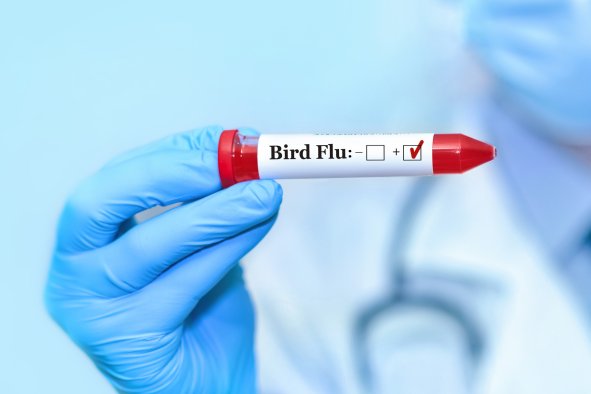Healthcare officials are sounding the alarm after a highly contagious sexually transmitted ringworm infection was detected in the U.S. for the first time. But what is ringworm and how do you know if you have it?
Ringworm is a broad term for a group of skin infections caused by various species of fungi. There are many different forms of ringworm, including athlete's foot and jock itch. However, a rare species of sexually transmitted ringworm, known as Trichophyton mentagrophytes type VII, has now been detected in the U.S. for the first time.
The fungus has previously been detected in Southeast Asia and Europe, and now, in a paper published on June 5 in the journal JAMA Dermatology, doctors from New York University's Grossman School of Medicine have described what they believe to be the first U.S. case of the parasite.
So, what does an infection with Trichophyton mentagrophytes look like?
The patient in question was a man in his 30s who had developed scaly, red patches around his groin, genitals and buttocks, as well as his legs, arms and back. He had just returned to New York after traveling to England, Greece and California when the rashes began to appear. During his travels, the patient reported having multiple male sexual partners, although none had similar rashes.
A skin biopsy confirmed that the patient's rash was caused by ringworm and he was prescribed an antifungal treatment. After the initial treatment was unsuccessful, his physicians analyzed the fungus and found it to be Trichophyton mentagrophytes and modified his antifungal regimen.
Trichophyton mentagrophytes can present like a regular ringworm infection, with a ring-shaped red rash across the skin, particularly around the thighs and genital area. However, his doctors warned that infection with Trichophyton mentagrophytes can be more inflammatory and result in abscesses and scarring if left untreated.
The report's first author, Avrom Caplan, added that the rash may also look more like an eczema flare-up rather than the typical circles formed by ringworm.
"Dermatologists in the U.S. should be aware of [Trichophyton mentagrophytes] infections," the authors said in the report. "Prompt treatment may reduce the risk for scarring and transmission."
It is also important that patients are open with their physicians about new or persistent rashes in their genital area, as well as their sexual history where relevant.
"Since patients are often reluctant to discuss genital problems, physicians need to directly ask about rashes around the groin and buttocks, especially for those who are sexually active, have recently traveled abroad, and report itchy areas elsewhere on the body," senior study author Dr. John Zampella, an associate professor of dermatology at the NYU Grossman School of Medicine, said in a statement.
This report comes one year after a closely related fungus, called Trichophyton indotineae, was found to be unresponsive to commonly used anti-fungals in the U.S. However, the present case of Trichophyton mentagrophytes did appear to be responsive to standard anti-fungal treatments, although it took four and a half months for the patient to heal.
Both fungal infections are being closely monitored by doctors at New York University, although the team stressed that infection rates across the U.S. were still very low. Even so, Caplan stressed that if you have a persistent rash or skin lesion, you should see your doctor.
Is there a health problem that's worrying you? Let us know via health@newsweek.com. We can ask experts for advice, and your story could be featured on Newsweek.
Disclaimer: The copyright of this article belongs to the original author. Reposting this article is solely for the purpose of information dissemination and does not constitute any investment advice. If there is any infringement, please contact us immediately. We will make corrections or deletions as necessary. Thank you.



